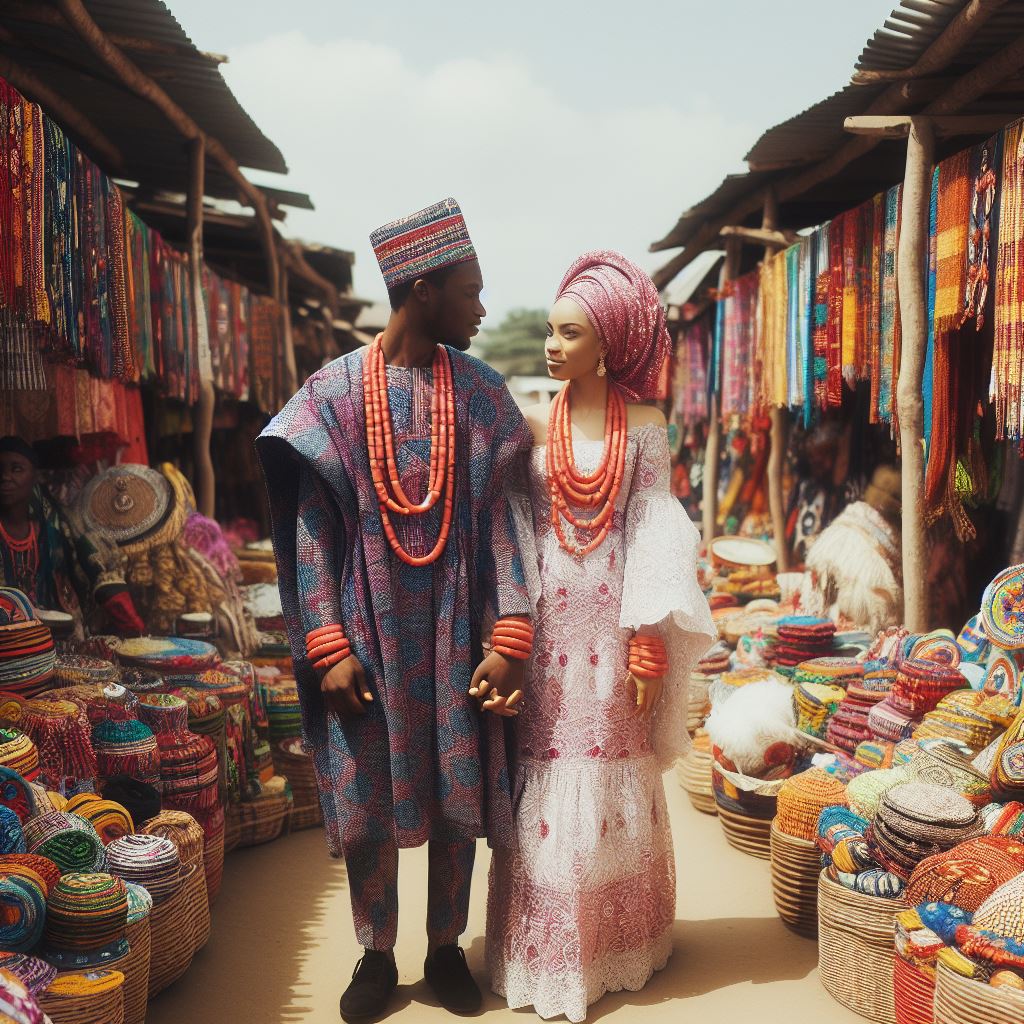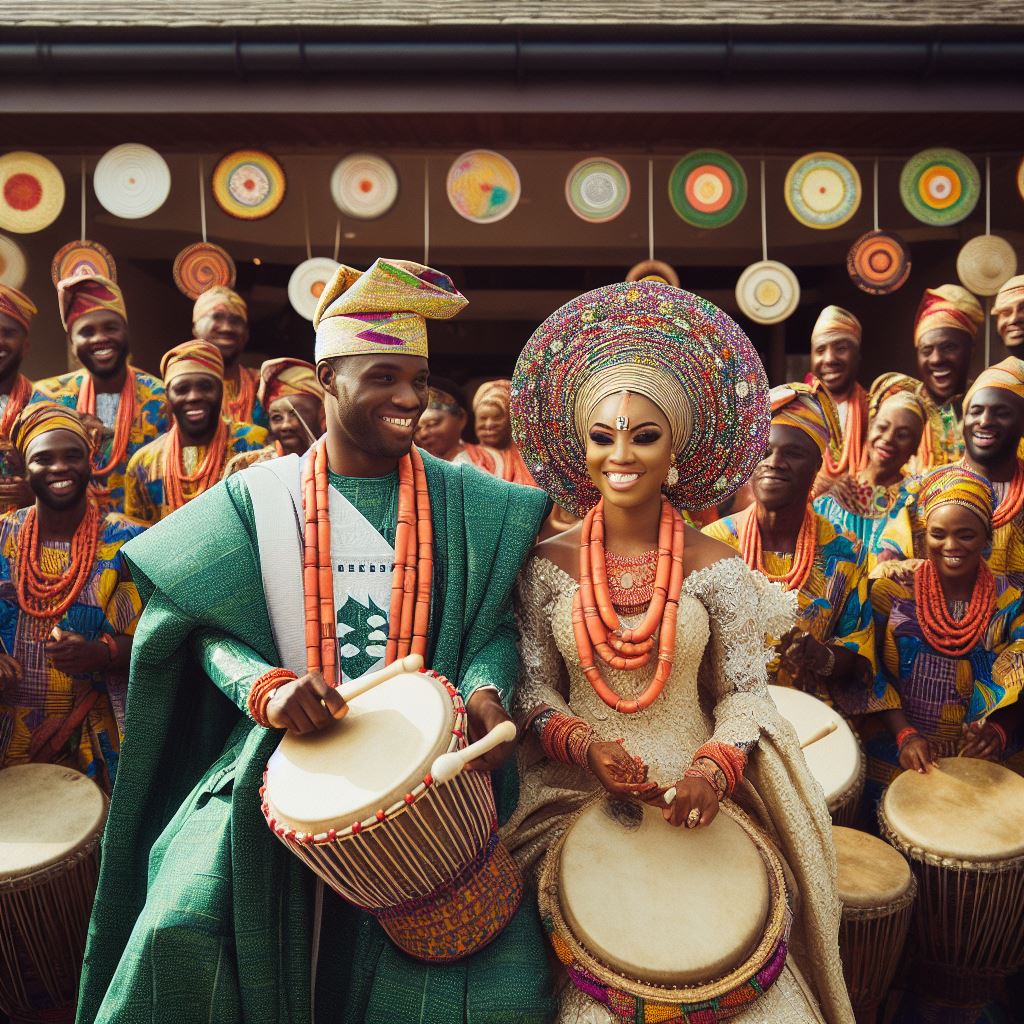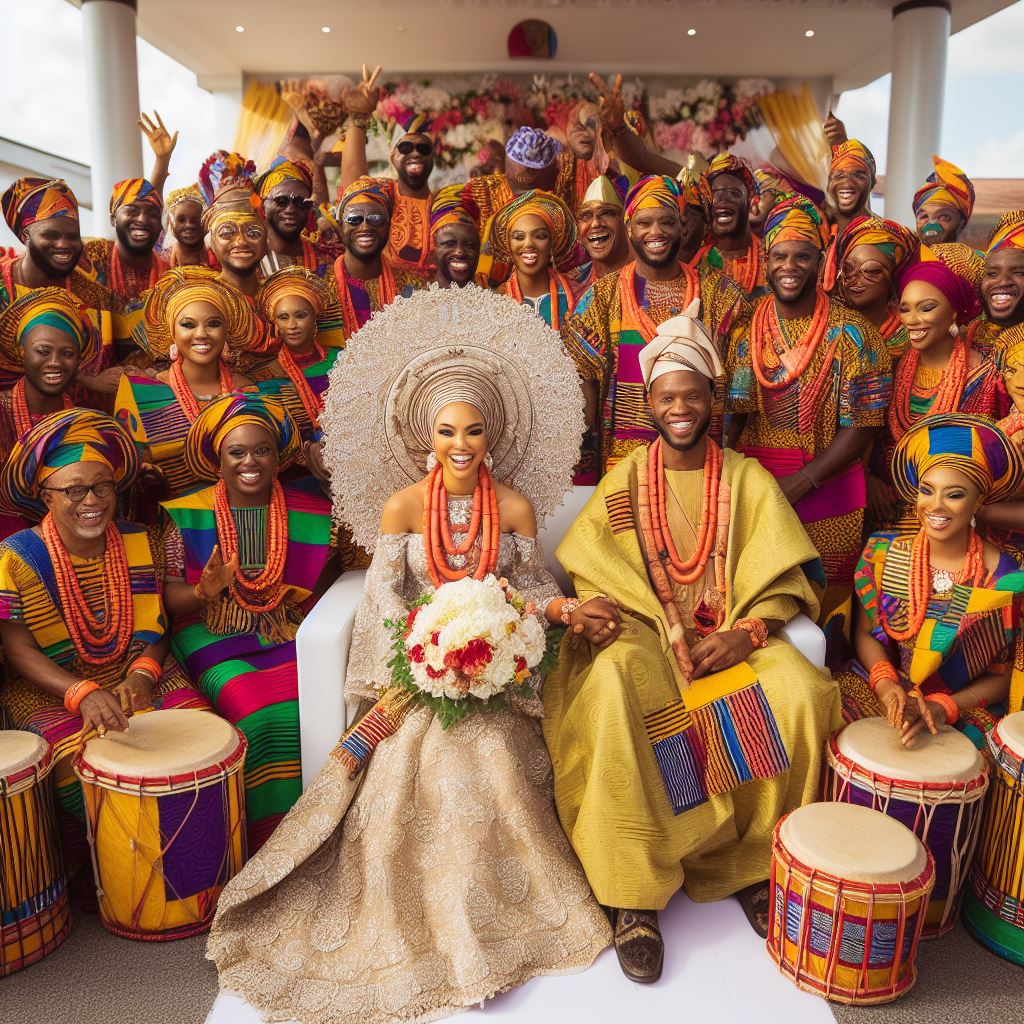Introduction
Economic Overview in Nigeria
To understand marriage decisions in modern Nigeria, we must navigate the complex economic backdrop that shapes unions.
Significance of Marriage in Nigerian Society
Marriage is not merely a personal choice; it’s a central pillar of Nigerian society. It serves as a bridge between generations, a celebration of culture, and a marker of social status.
In this section, we embark on an illuminating exploration of the substantial influence wielded by economic factors in shaping marriage choices in contemporary Nigeria.
Beyond personal affection, these decisions are embedded in the intricate web of economic opportunities and constraints, which impact individuals and families across the nation.
As we delve deeper, we’ll unravel how economic stability, financial aspirations, and socio-economic backgrounds intersect with love, tradition, and cultural expectations.
Come along as we explore the intricate world of modern Nigerian marriages, where economics is both a necessity and a potent influence.
Read: The ‘Married at First Sight’ Phenomenon: Nigeria’s Perspective
Economic factors influencing marriage decisions in Nigeria
Economic factors play a significant role in shaping marriage decisions in modern Nigeria.
This blog section will explore the various elements within the economic realm that exert influence on individuals when deciding to marry.
Financial stability and security
- Job prospects and earnings potential: The availability of stable employment and potential for higher income are primary factors influencing marriage decisions.
Individuals seek partners who can contribute financially to the household. - Property ownership and assets: Owning property and having substantial assets enhance a person’s desirability in the marriage market. It provides a sense of security and stability.
- Ability to provide for a family: Marriage often comes with the expectation of starting a family.
Individuals consider their financial capability to support a spouse and children in terms of basic needs and aspirations.
Socioeconomic status and social mobility
- Influence of family background and wealth: An individual’s family background and wealth influence marriage decisions as families seek to maintain or improve their socioeconomic status through strategic alliances.
- Desire to improve social status through marriage: Many Nigerians aspire to move up the social ladder, and marriage offers an avenue for upward social mobility.
Marrying someone from a higher social stratum can enhance social standing. - Impact of education and career prospects: Education and career opportunities directly affect marriage decisions.
Higher education and better career prospects increase marriage options and perceived compatibility.
Economic pressures and societal expectations
- High costs associated with Nigerian weddings: Weddings in Nigeria can be extravagant and financially burdensome.
The pressure to have a lavish celebration can delay or influence marriage decisions. - Pressure to meet material expectations: Nigerian society places importance on material possessions. Prospective partners may feel pressure to meet these expectations, impacting their decisions to marry.
- Financial strain of starting a family: The economic burden of starting a family, including expenses related to raising children, can be a deterrent to marriage.
Financial stability is crucial before committing to marriage.
Economic factors have a substantial influence on marriage decisions in modern Nigeria.
Financial stability, socioeconomic status, and pressures associated with societal expectations all shape individuals’ choices when considering marriage.
Read: Couples of the Bible: Stories and Marriage Verses
Gain More Insights: The Influence of Religion on Marriage Life in Nigeria
Effects of economic factors on marriage patterns in Nigeria
Delayed marriages and increasing age at first marriage
- Focus on education and career development.
- Financial constraints and personal goals.
- Changing perceptions about the ideal age to marry.
Shift from arranged marriages to love marriages
- Increased emphasis on individual choice and compatibility.
- Balancing economic considerations with emotional factors.
- Influence of globalization and exposure to alternative models of marriage.
Rise of cohabitation and non-marital relationships
- Economic challenges and the preference for financial stability.
- Cultural shifts and the acceptance of unmarried partnerships.
- Decreased importance of marriage as a socioeconomic institution.
The trend towards cohabitation and non-marital relationships reflects the changing landscape of relationships and families in the modern world, characterized by greater diversity and individual choice.
Read: Heartfelt Marriage Prayers and Their Bible Origins

Challenges and opportunities for economic development and gender equality
Impact of gender inequality on marriage decisions
- Women’s economic empowerment and decision-making power.
- Bridging the gender wage gap and employment opportunities.
- Addressing cultural norms and gender roles affecting marriage decisions.
Role of government policies and interventions
- Promoting economic opportunities for all Nigerians.
- Implementing social safety nets and support systems.
- Creating awareness about the economic impacts on marriage decisions.
Gender inequality plays a significant role in shaping marriage decisions in modern Nigeria.
The economic empowerment of women and their decision-making power are crucial factors in determining the dynamics of marriage.
Women’s access to financial resources and their ability to have a say in important family matters greatly influence their choices regarding marriage.
Additionally, bridging the gender wage gap and providing equal employment opportunities are key to empower women economically.
If women have access to well-paying jobs and are not discriminated against in the labor market, they are more likely to make informed decisions about marriage based on their personal aspirations and goals.
Cultural norms and gender roles also affect marriage decisions in Nigeria.
Traditional expectations of women as primary caregivers and homemakers limit their economic independence and contribute to their dependence on marriage for financial stability.
Addressing these societal norms and promoting gender equality can enable women to have more agency in deciding their marital future.
The government has a crucial role in promoting economic development and gender equality in Nigeria.
Policies aimed at creating equal economic opportunities for all Nigerians, regardless of gender, can positively impact marriage decisions.
By implementing measures to reduce barriers to education, employment, and entrepreneurship, the government can empower women and promote equitable partnerships.
Read: From Adam and Eve: Lessons on Marriage in the Bible
Conclusion
Recap of the main points discussed
Throughout this section, we explored the economic impacts on marriage decisions in modern Nigeria.
We discussed how economic factors such as unemployment, income inequality, and the rising cost of living influence individuals’ decisions to marry.
Overall assessment of the economic impacts on marriage decisions in modern Nigeria
It is evident that economic factors play a significant role in shaping marriage decisions.
The economic challenges faced by individuals, especially young adults, often result in delays or even avoidance of marriage.
High unemployment rates and income inequality contribute to financial instability, making it difficult for individuals to afford the expenses associated with marriage.
Call to action for further research and policy measures in addressing economic disparities in marriage decisions
To address the economic disparities influencing marriage decisions, further research is necessary.
Policy measures are needed to create economic opportunities, reduce income inequality, and alleviate the financial burdens associated with marriage.
Additionally, providing support systems and resources for young adults can encourage them to consider marriage as a viable option.
The economic impacts on marriage decisions in modern Nigeria cannot be undermined.
Economic factors significantly influence individuals’ choices, and addressing economic disparities is crucial for promoting stable and healthy marriages.
Further research and policy measures are necessary to create an environment that supports individuals in making informed decisions about marriage.
By addressing economic disparities, we can pave the way for a more inclusive and prosperous society in Nigeria.




